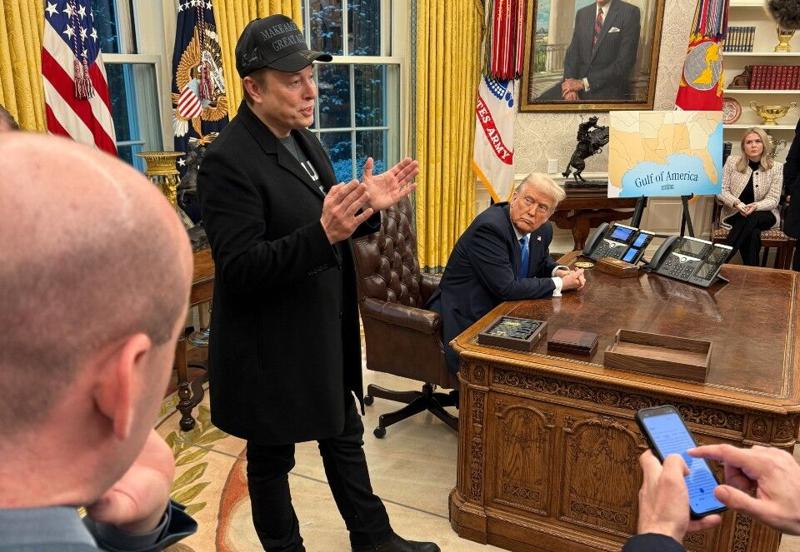Tesla boss Elon Musk on Tuesday leveled his harshest comments yet at the House budget bill, calling it an “abomination.”
“I’m sorry, but I just can’t stand it anymore. This massive, outrageous, pork-filled Congressional spending bill is a disgusting abomination,” Musk wrote on X. “Shame on those who voted for it: you know you did wrong. You know it.”
U.S. Rep. Thomas Massie, R-Ky., responded: “He’s right.”
The One Big Beautiful Bill Act, in its existing form, raises the debt ceiling by $4 trillion and funds most of Trump’s tax, border, energy and defense agenda, including codifying the 2017 tax cuts. That budget blueprint allowed House committees to budget $4.5 trillion in lost revenue over the next decade, provided they also find $2 trillion in cuts and assume $2.6 trillion in economic growth.
Since House committees found only $1.5 trillion in cuts – including to entitlement programs like Medicaid – the bill authorizes $4 trillion in spending. Organizations such as the Committee for a Responsible Federal Budget say the true cost of the bill could amount to a $5.2 trillion federal debt increase.
On Tuesday, White House Press Secretary Karoline Leavitt denied the measure would increase U.S. debt, calling anyone who said so “blatantly wrong.”
Musk said Tuesday that the spending measure would “massively increase the already gigantic budget deficit to $2.5 trillion (!!!) and burden America citizens with crushingly unsustainable debt.” He added: “Congress is making America bankrupt.”
The Committee for a Responsible Federal Budget said Tuesday the House plan would “massively” boost deficits.
“The House is continuing to mark up its reconciliation legislation, which we estimate would add $3.3 trillion to the debt including interest or $5.2 trillion if its temporary provisions are made permanent,” the group wrote. “In part because new borrowing is front-loaded and offsets are back-loaded, the bill would add massively to near-term deficits.”
In March, President Donald Trump promised Americans a balanced budget during a speech before a joint session of Congress.
“In the near future, I want to do what has not been done in 24 years: Balance the federal budget,” he said. “We are going to balance it.”
In the past 50 years, the federal government has ended with a fiscal year-end budget surplus four times, most recently in 2001. Congress has run a deficit every year since then.






